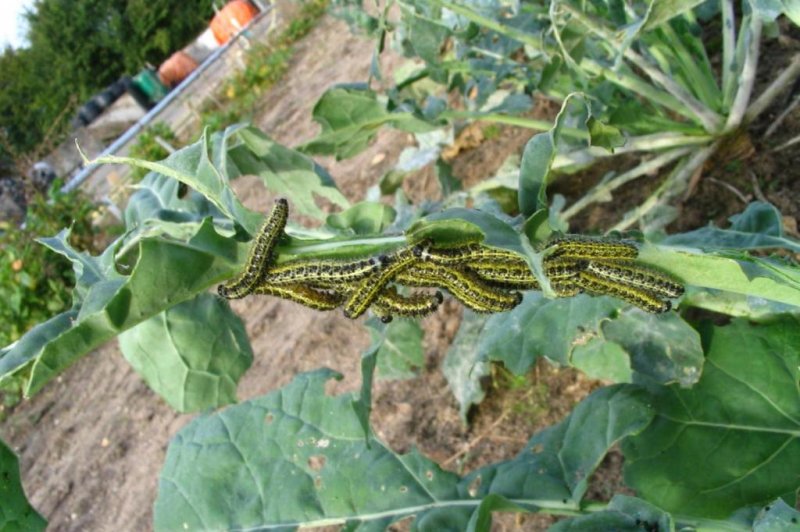When cabbage white caterpillars chew on the leaves of field mustard, the plant emits a unique combination of volatile compounds. The smell helps attract caterpillar predators like parasitic wasps. Photo by Nicole Van Dam/IDIV
Jan. 31 (UPI) -- According to a new study, plants put out a unique combination of volatile compounds when attacked by exotic pests.
Plants have developed a diverse array of defensive mechanisms, and smell is one of them. When chewed on by insects and other leaf-eaters, plants emit different combinations of smells. The smells vary, but the purpose is to attract species that prey upon the plant-eating pests.
When caterpillars much on cabbage, for example, unique volatile compounds are emitted to attract parasitic wasps, which lay their eggs inside the caterpillars, ultimately killing the pests.
Researchers in Germany recently analyzed the smells emitted by field mustard, Brassica rapa, in response to 12 different herbivore species, including caterpillars, aphids and even a slug. Scientists used a chromatograph outfitted with a fine-tuned mass spectrometer to identify small differences in the compounds trigger by each type of leaf-eater.
Scientists found the largest differences between the bouquet of compounds triggered by native and exotic species.
"This is consistent with what we know about the perception and behavior of parasitic wasps and other predators," lead researcher Nicole van Dam, a professor at the German Centre for Integrative Biodiversity Research, said in a news release. "They use a bouquet of odours released by the plant to obtain information about their prey."
Researchers detailed their findings in the journal New Phytologist.
"The plants may not have a nervous system, eyes, ears, or mouths, but they are capable of determining who is attacking them," van Dam said. "Based on this, they can transmit reliable information to specialized parasitic wasps that can learn the odors to find their preferred host. What I find truly amazing is that they're even capable of distinguishing between a native and an exotic herbivore."















